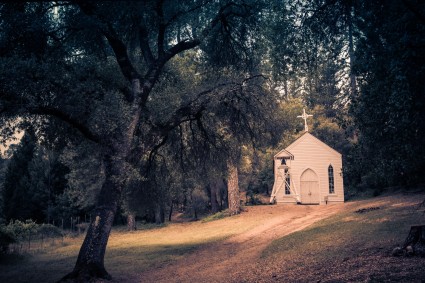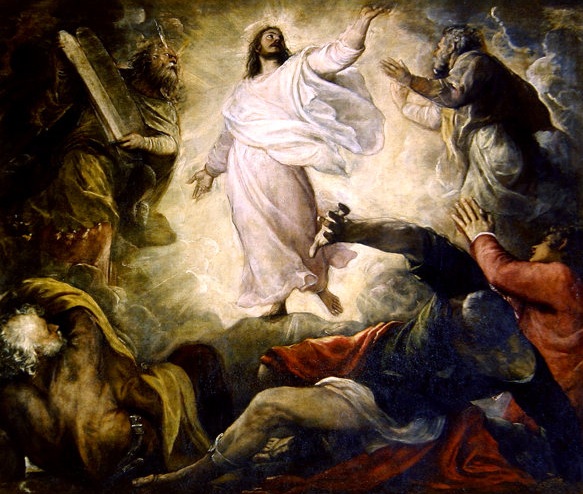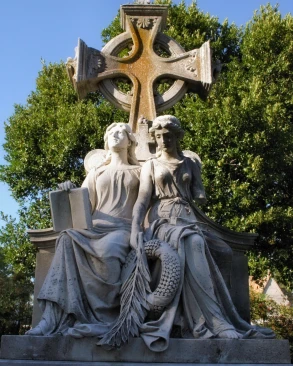
Edward F. Mooney is an Emeritus Professor of Religion and Philosophy at Syracuse University. His most recent book, Excursions with Thoreau, Philosophy, Poetry, Religion was published by Bloomsbury in 2015, and he has also published numerous books on Kierkegaard. He still writes on Kierkegaard, and contributes to the interdisciplinary blog Zeteo on everything from Bach to Wittgenstein. He settled into Portland, Maine, after two years living and teaching at Tel Aviv and Hebrew Universities. He plays chamber music (violin and viola) and sings (bass). In a breakaway moment, he’s delivered several sermons at a local church. His email is efmooney@syr.edu.
J. Aaron Simmons (JAS): You have spent most of your life as a philosopher working on the thought of the Danish philosopher, Soren Kierkegaard. He had a notoriously difficult relationship with the Lutheran Church in Denmark. That said, how has thinking with Kierkegaard helped you to think about the relationship between philosophy and the church here in your own context? Do you think that there are specific things that Kierkegaard’s critique of “Christendom” can offer to us here and now as resources for reconsidering church practice?
Edward F. Mooney (EFM): Thanks for opening up this informal dialogue, Aaron. I’m quite surprised that I now give occasional sermons and perform occasional weddings. I’ve had no pastoral training, and although when I was ten my minister’s wife told me that I should become a minister, by the time I was twenty I’m sure she would have recanted. For the next five decades or so I studied and taught philosophy and kept a friendly distance from both from church and divinity schools. This is my first attempt to say something coherent about this late-life transition. Your questions will guide.
You ask about Kierkegaard’s battle with the Danish Lutheran establishment. Kierkegaard’s anger at the State Church for its pomp and circumstance is paired contrastively, in my mind, with his quite reverent listening attentiveness to folk of all sorts with whom he fell in stride and conversation on his daily walks. He had no anger but only respect, perhaps gentle love, for them. He was not a grump or misanthrope or intellectual elitist. In a sense (for me, at least) his church was the streets.
Of course this is a very personal image of him that I share now, but it’s one way to see my own sense of a terrain where one can be fully Christian, as Kierkegaard was, without fussing over doctrine or chapel attendance.
Another angle on Kierkegaard comes from my immersion in his labyrinthine, explosive, strangely gentle, often perplexing texts. I love the challenge. I love the fact that a writer can be simultaneously soaringly philosophical, literary, and dramatic, so brilliantly intelligent, so satirically cutting. And entertaining. And funny. And sermonic. He defies genre-schemes and categories of mood, writing temperament, or style.
His writing is more a scattered, impulsive barrage of creativity that an ordered easy-to-follow oeuvre. We find an overwhelming variety of paragraphs on an overwhelming variety of issues wherever we dip into his volumes upon volumes.
How does all this bear on the practice of the church? I suppose it’s an invitation to improvisation, to bend formats of liturgy, to encourage daring sermonic and liturgical imagination. And it’s an invitation to listen to street conversation.
Dogma and doctrine should cohere in theory. But Kierkegaard is non-doctrinaire and anti-dogmatic—which is to my taste. I am always more interested in the snippet, the paragraph, the three pages here or there, full of almost random insight—rather than in any supposed grand thesis.
As you know, we’re in the midst of this conversation because I’m eager to make better sense of my migration in the past year or so into a wonderful church community in Portland, Maine. This is after a life-time of being a respectful outsider—apart from the pleasure of frequent choir and chorus performance in various sanctuaries, and youthful, pre-college memories. This change is slowly getting into focus, but by bit. There was no grand revelation or conversion experience. But Kierkegaard and Thoreau give me lots of tools for understanding it.
I guess my take on things now, with regard to Kierkegaard’s relevance to church practice, is that a church can, and should, gently spill into the streets, and it should welcome the streets to enter under its roof, setting aside for as long as possible confessional commitments or family lineage and upbringing as litmus tests preliminary to soulish encounter. A church should welcome good-hearted improvisation and imagination.
Exchange among souls, co-mingling, is primary. Rigid adherence to set doctrines or practices is secondary. I find Kierkegaard to be an anti-dogmatist through and through. And he had what I’d call a street—and literary—religious practice. In a provocative moment from a posthumous typescript, he writes “I am not a Christian”—and yet he’s as Christian as can be. Bruce Kirmsse calls this Kierkegaard’s “sublime lie.” [See his essay in Anthropology and Authority: Essays on Søren Kierkegaard, ed. by Poul Houe, Gordon D. Marino, Rodopi 2000.]
I think Kierkegaard has taught me, over the years, to become progressively sensitive to what is soul rather than self—where ‘self’ has come to be too wedded to self-assertion and getting ahead in life. You might say that Kierkegaard teaches us to exchange self for soul, and to see soul as both inner and outer, as a matter of what we do in solitude, but also of how we listen to the souls of others, and through openness to them, nourish and be nourished. Thus we become who we are, fluid ensembles of listeners and singers who periodically break into solos only to return to duets or larger groups. But all this verges on philosophical-theological reflection rather than on what Kierkegaard can inspire with regard to church practice.
(JAS): Your own story is interesting in that you have recently begun offering “sermons” in Christian contexts. How does delivering an academic lecture differ from offering such sermons? What do you think academics and pastors can learn from each other in this regard?
(EFM): I’m only a beginner here, but the challenge is to speak to an intelligent and caring but non-academic audience. One can become stale taking only to professors, graduate students, and undergraduates. Topics or themes I’d use in a university setting need to be refreshed with a new ‘public’ in mind. And I suspect facility gaining audiences outside a university can’t help but to enhance their success in reaching the hearts and minds of students.
I might digress here to urge that teachers in the humanities take their vocation as a ministry to souls reaching for depth and maturity. Too often classes are conceived as a locus for information-transfer or practice in writing. I’ve written quite a bit about teaching, at its best, being a form of passionate speech meant as an invitation to realign the soul. Teaching should resemble 40 minutes with Kierkegaard or Thoreau as they entice us with words rather than a training session on mastering a new computer app or new methodology for research.
I like the challenge of a twenty-minute talk to a congregation that carries (I hope) a vibrancy we weed out in professional deliveries, and a sense that the soul is to be rent or uplifted. I think the congregation I face is not afraid of difficult thought if it’s delivered poetically. It’s not just the rhythms of delivery but also a down-to-earth diction that nevertheless sparkles. The congregation is for the most part loyal and welcoming in listening, not distracted by thoughts of rushing to a next class or by worry about tests—or by the glance from next row down.
In the congregation I’ve joined I’m not restricted in sermons to biblical commentary—I might start recalling a scriptural passage, but I can quickly wander. I can learn the discipline of scriptural interpretation, a boon. And I suppose some pastors might be intrigued both by my wandering and by my discipline in listening to language philosophically.
(JAS): Postmodernism is often seen by many in the church as a significant threat to Christian Truth (always expressed with a capital-T). Alternatively, many postmodern philosophers suggest that postmodernism is what makes Christianity possible again after the “death of God” as it were. How do you think pastors and academics can work together in a postmodern world to navigate this tension?
(EFM): I’m old enough to remember when existentialism was seen as a threat to Christian Truth. Existentialism became atheism, pure and simple. When French Structuralism, Post-Structuralism, and Post-modernism moved center stage, they too were regarded as a threat. But individual thinkers are almost always more nuanced and rewarding than a general rubric like “Post-modernism” or “Existentialism.” I read Sartre and Kierkegaard, Marcel and Tillich, and discover riches unavailable if I try to characterize “Existentialism” or “Death of God Theology” or “Post-modernism” in the abstract.
I suppose if we focus on the demise of “Big-T-truth,” we might have a manageable theme for discussion. But I’m cautious here, too, even though I’ve written on “Tactile Truth” and “Truth in the Trenches.”
Donald Trump is sometimes announced as having opened post-truth politics. If so, it’s time to defend truth—period. When I think of the philosophers I most admire—say Kierkegaard and Thoreau—I’m not sure they were devoted to “Big-T-truth,” though they weren’t out to deconstruct it, either. I suspect they thought it was an issue beyond their ken, for only the gods to debate and decide (keeping their conclusions to themselves). I suspect they thought that truths saturate everyday life and appear glancingly in transcendent moments in everyday life. That’s where they’d focus their efforts.
I suspect that for Kierkegaard and Thoreau, debates about “Big-T-truth” would fall into the same collection can as debates about proofs for the existence of God.
Maybe I’m stuck with pre-post-modern texts; that would account for my flat-footedness in responding to your question. Musing, I’d rather construct and sing praises than deconstruct. I’m a romantic at heart. I want to build castles, or admire them, or admire their ruins, or study their blue-prints, or get a photo of sunrise behind the spire, dappling a meadow. Believe it or not, that’s philosophy and theology for me.
My most recent paper is on Moby Dick as fluid, episodic philosophy-literature-theology-disaster with a strong dash of demonism, but also a song in praise of life, spirit, and soul, and full of truths scattered all about.
Wittgenstein is not Melville, but he too is a religious-existentialist-romantic, unafraid of episodic illumination and absence of grand theory. If we turned to perplexities about truth or truths, he’d ask us to attend to ‘truly sorry,’ ‘true friend,’ ‘true pitch,’ ‘truthfulness,’ or ‘truing up the angle.’ These exercises would shed light on our quite legitimate and wide ranging craving for truth.
(JAS): What two or three books do you wish all pastors would read? Why?
(EFM): I’d want to know what a pastor has already read, and where her passions lie. There are three retired pastors in my congregation, and one is reading Martha Nussbaum, whom I recommended. He’s looking for clues for changing our feelings from worse to better. Nussbaum’s Fragility of Goodness is wonderfully moving and helps place positive emotions, love and friendship, back to the center of human existence.
James Edward’s The Plain Sense of Things: the fate of religion in an age of normal nihilism is inspiring and always insightful. He discusses, among others, Heidegger, Thoreau, and Kierkegaard as thinkers who have not utterly abandoned a religious sensibility.
I think Kierkegaard’s “Lilies of the Fields and Birds of the Air” is exemplary in embodying lyrical spiritual insight. Of course, I’m still giddy from immersion in Thoreau, a first-rate poet, philosopher, and religious thinker. I’d recommend dipping here and there in A Week on the Concord and Merrimack Rivers.
And I’d recommend Reverence: Renewing a Forgotten Virtue, by Paul Woodruff. All of these books evince sensitivity to theology, philosophy, literature, and a moral-religious sensibility. They help dissolve the great walls between these domains of thought, feeling, and expression, and help energize an ecumenical spirit among those of faith, faithful doubters, and those who admire faith even while lacking it.
Thanks, Aaron, for prompting my thought on these issues, unfinished as it is.
 In the Masterpiece Mystery series Foyle’s War, Detective Chief Superintendent Foyle solves regular crimes in an average British town during the extraordinary times of World War 2. Although he would rather serve the War Office, Foyle eventually accepts that his war effort will entail fighting local crimes and bringing criminals to justice.
In the Masterpiece Mystery series Foyle’s War, Detective Chief Superintendent Foyle solves regular crimes in an average British town during the extraordinary times of World War 2. Although he would rather serve the War Office, Foyle eventually accepts that his war effort will entail fighting local crimes and bringing criminals to justice.

 Written by: Christy Flanagan-Feddon
Written by: Christy Flanagan-Feddon Written by Kevin Timpe
Written by Kevin Timpe


 Written by John Lancaster
Written by John Lancaster
 Introduction: What Did Jesus Really Say and Can We Hear Him Today?
Introduction: What Did Jesus Really Say and Can We Hear Him Today? Success: Trying to Understand the Problem
Success: Trying to Understand the Problem